A country’s institutional environment is vital to its economic development. In response to the common question of why some nations are wealthier than others, many economists emphasize the role of institutions. Moreover, institutionalists consider institutional development, rather than the accumulation of human and physical capital, education, and technological progress, to be the primary driver of economic growth. They hold that growth results from the quality of a country’s institutions.
According to the Nobel-winning economist and leading proponent of new institutional economics, Douglass North, “Institutions are the rules of the game in a society; more formally, they are the humanly designed constraints that shape human interaction.”
The most common assessment of the quality of institutions is the World Bank’s Worldwide Governance Indicators project, which evaluates institutions in six areas: accountability, political stability, government effectiveness, regulatory quality, rule of law, and control of corruption.
The regional index is compiled based on five-year average figures from 2018-2022 and 2013-2017, where -2.5 denotes the lowest quality of institutions, and 2.5 denotes the highest quality.
Rule of Law
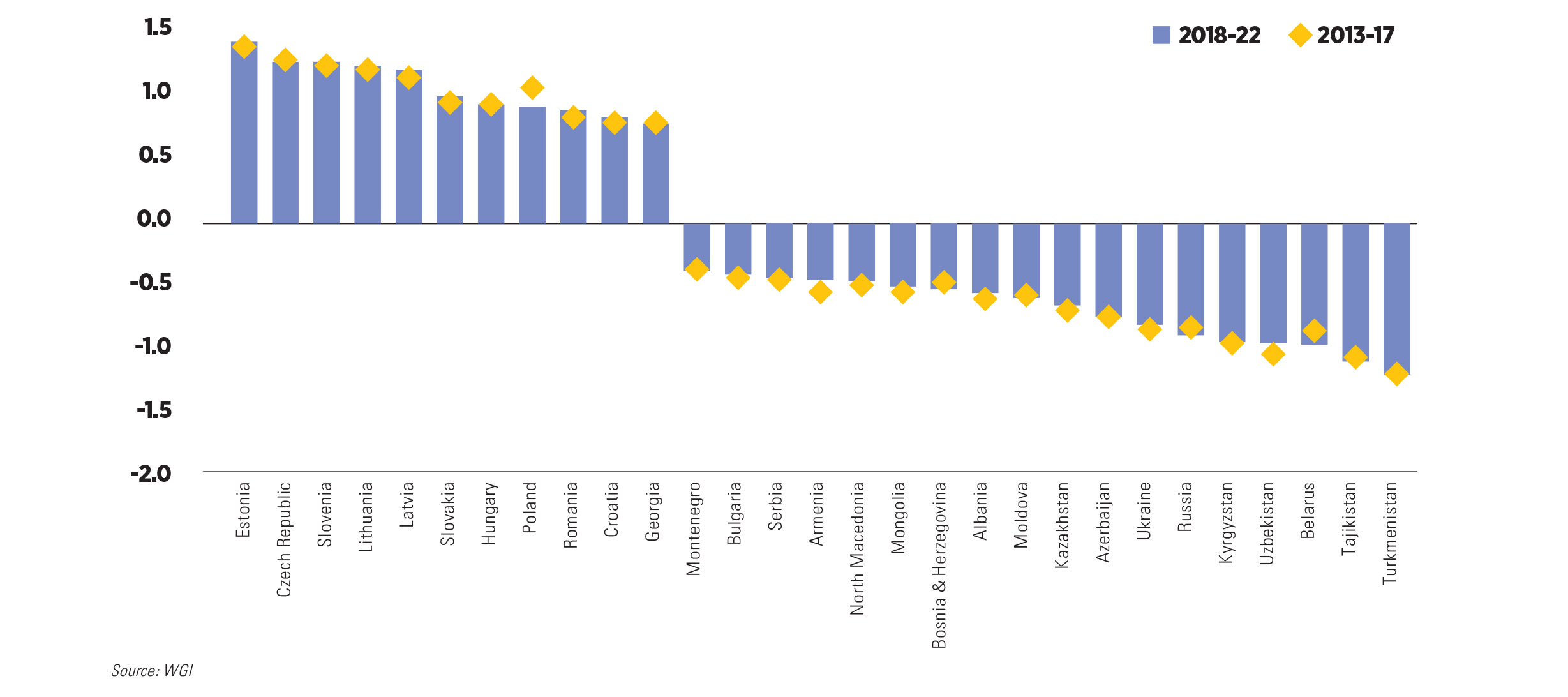
Regulatory Quality
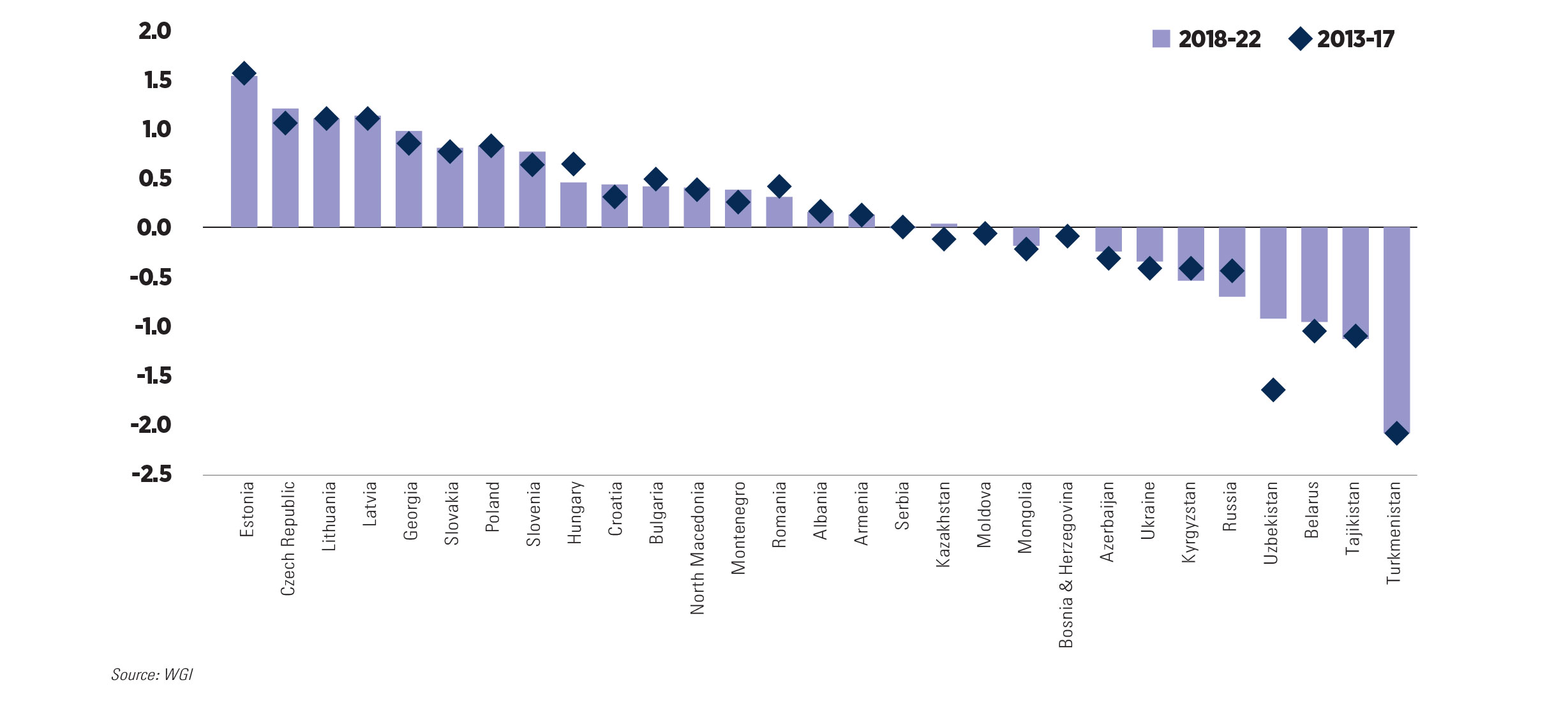
Control of Corruption
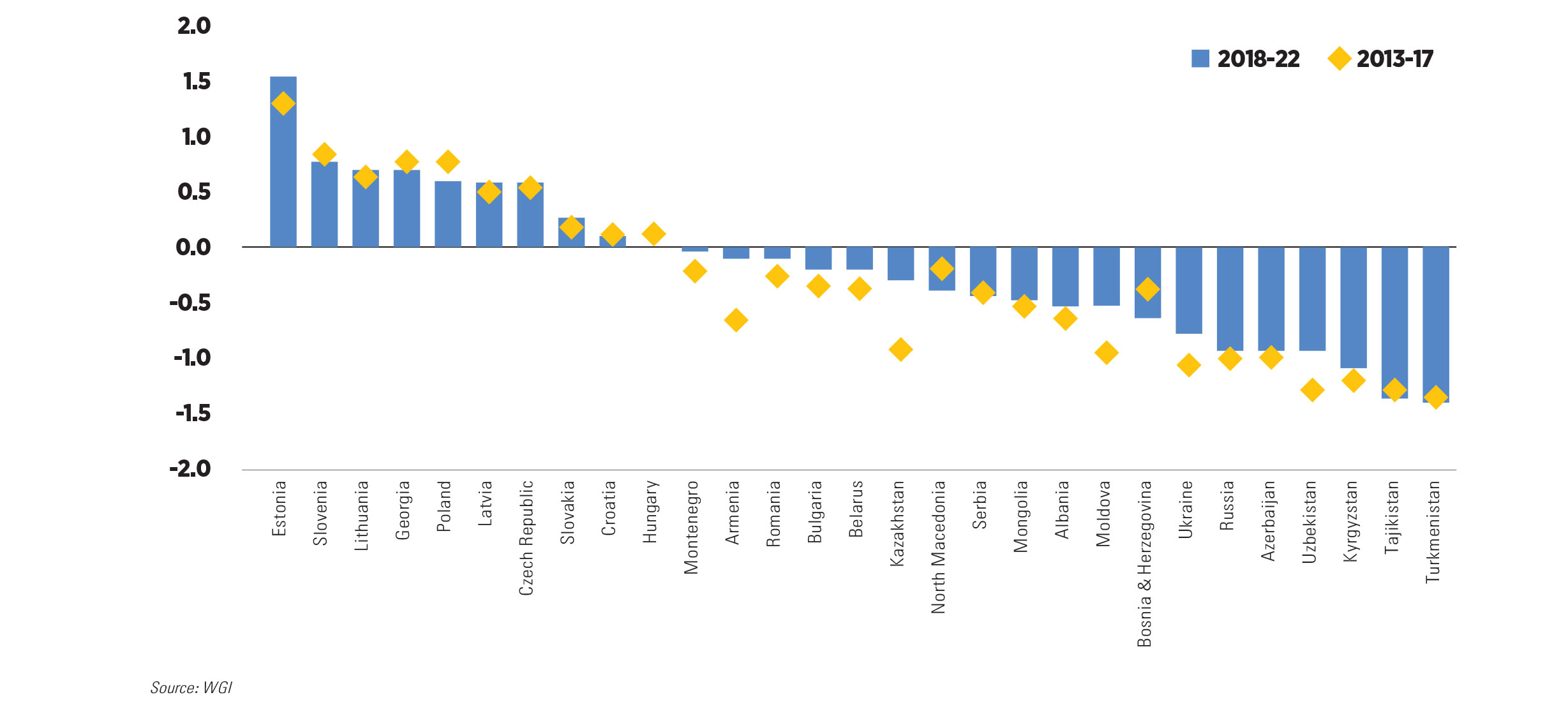
Government Effectiveness
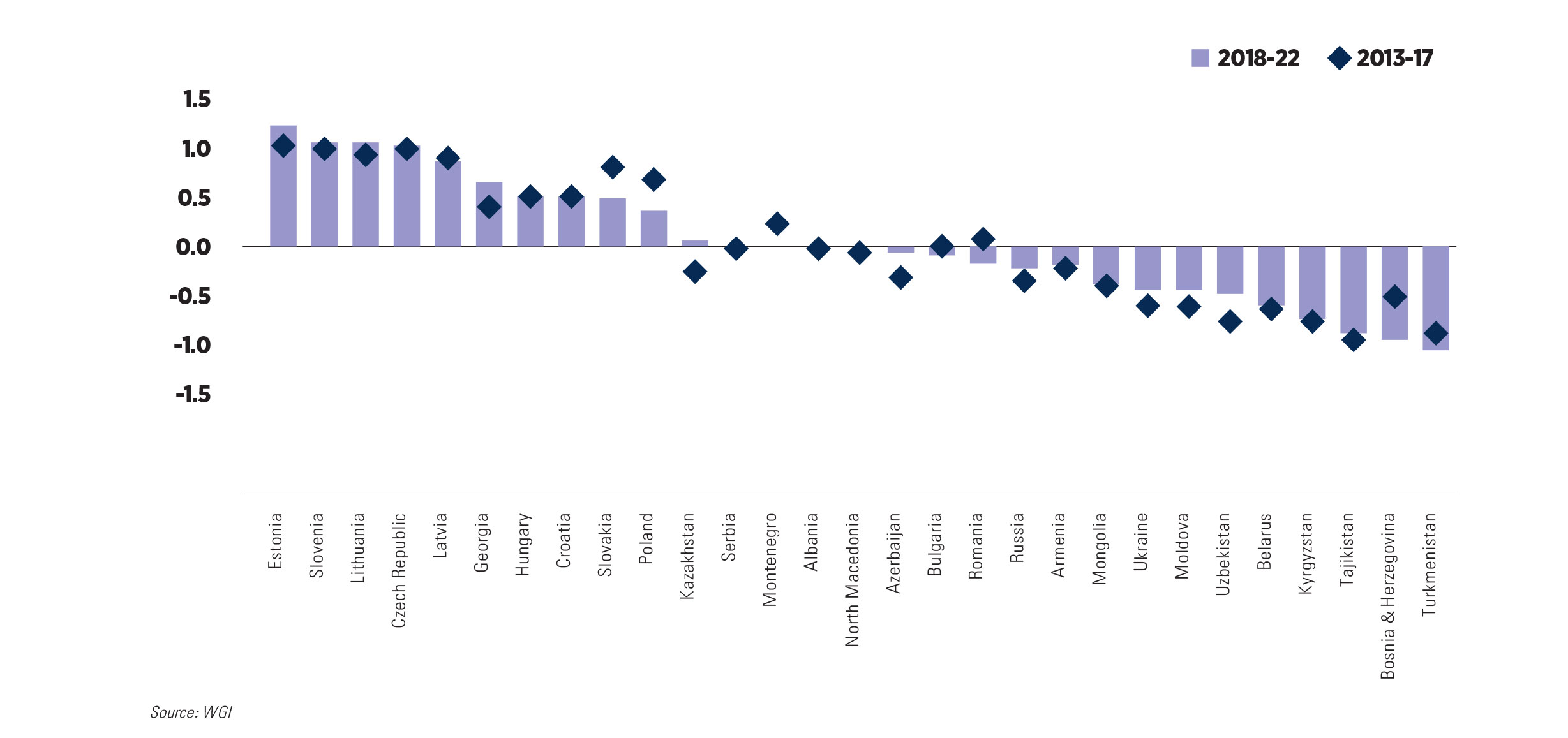
Voice and Accountability
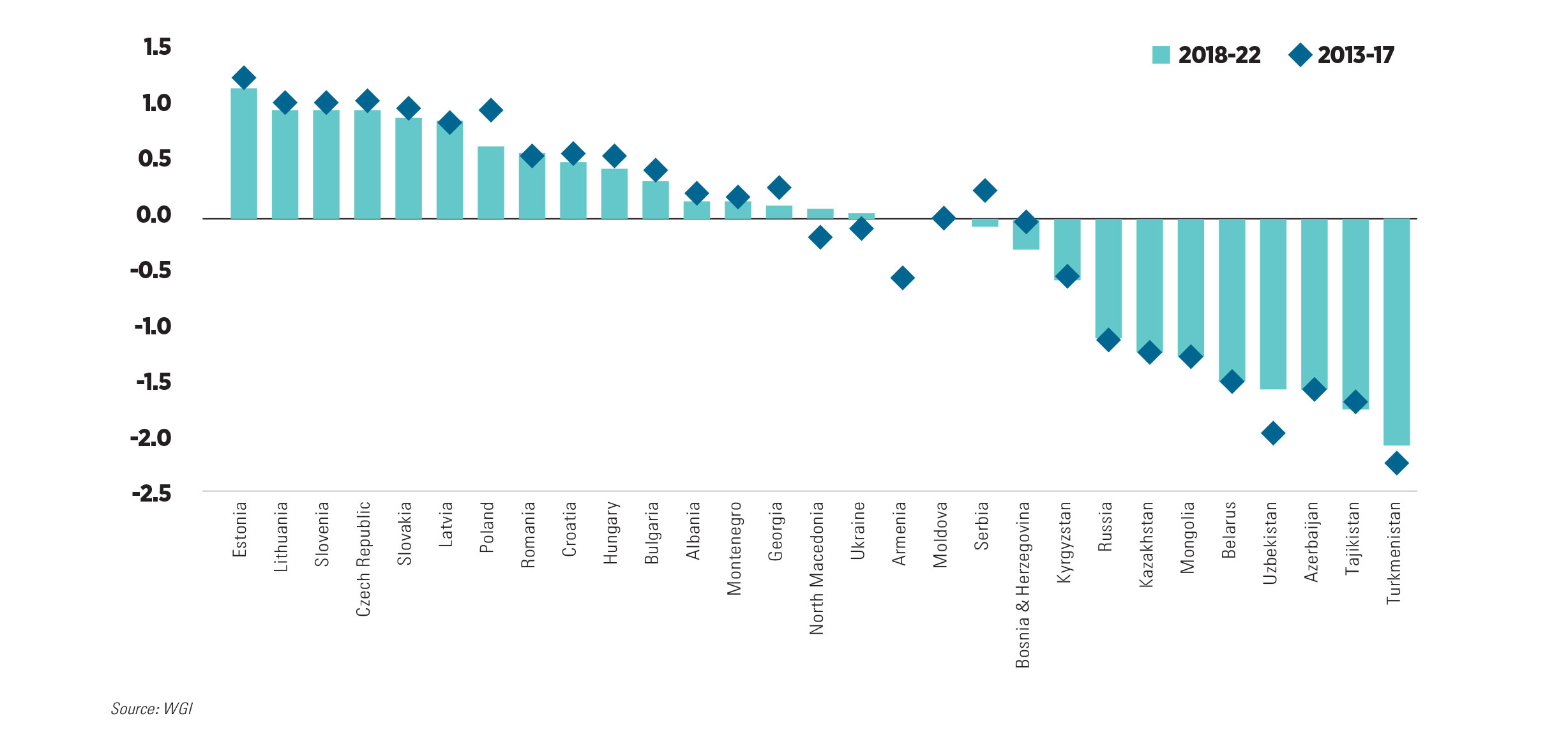
Political Stability and Absence of Violence / Terrorism
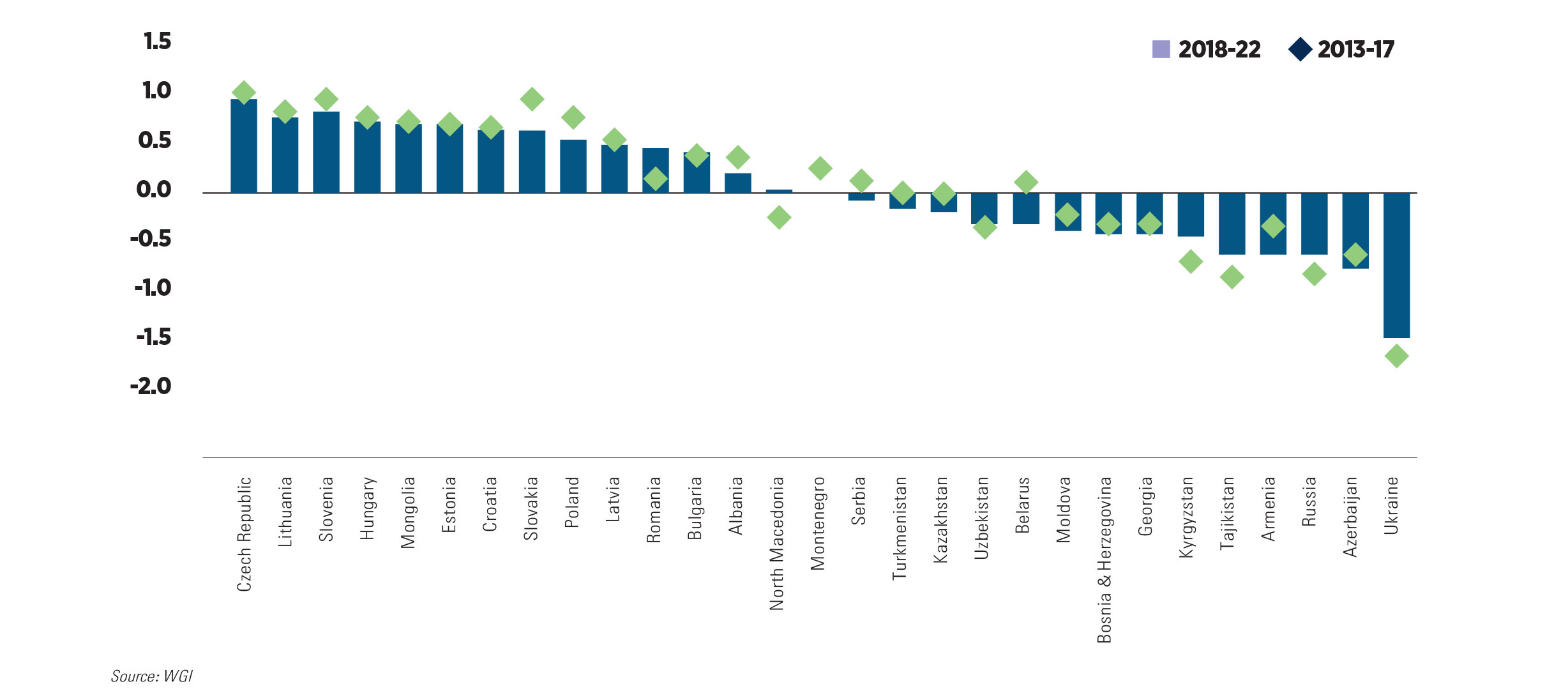
Georgia’s region consists of former socialist states, where political and economic systems have been radically transformed, and market institutions are relatively new.
Among the former socialist countries, the Baltic States, the Czech Republic, Slovakia, and Slovenia stand out in terms of institutional development. In contrast, the Central Asian countries of Turkmenistan and Tajikistan, as well as Belarus and Russia, are characterized by low levels of institutional development. Georgia has an above-average position in the index, with comparatively high ratings in regulatory quality and control of corruption and low ratings in accountability, political stability, and the absence of violence. As for rule of law, Georgia ranks 11th out of the 29 post-Soviet countries. Although Georgia has made some headway, improving the quality of its institutions has stagnated in recent years.

















